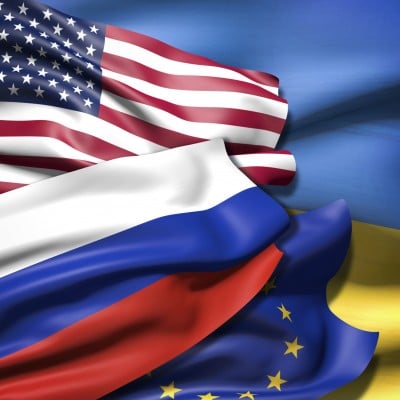Increasingly, I am receiving requests for legal support from Russian and Western individuals and businesses who are suffering from the economic sanctions imposed by the West on Russia, and from Russia’s counter-measures.
The legality of these sanctions is dubious at best. They flagrantly violate the free trade principles enshrined in the World Trade Organisation treaty and a host of other agreements. But putting legal arguments aside, politicians on all sides would do well to study the human cost of sanctions, and genuinely consider alternatives to this self-defeating form of economic warfare.
Economic sanctions rarely achieve anything, even in geopolitical terms. They merely fuel suspicion and hostility between states and peoples. Since the West first imposed sanctions this spring, Russia’s leadership has only further dug in its heels. It is telling that even President Obama and other leading American politicians have, on more than one occasion, admitted that sanctions have had no real impact on the Kremlin’s stance on Ukraine.
Yet the West pursues this strategy with palpable glee, goading an already angered Vladimir Putin.
The most recent round of Western sanctions defies any logic whatsoever, coinciding with the start of the ceasefire and the beginnings of a political settlement between the warring parties in Ukraine. In Russian eyes, this merely proves the West was never interested in peace. It also undermines those in Kiev arguing for political solutions.
Why does this madness continue?
The idea that Russians, feeling an ever-increasing amount of economic pain, would eventually take to the streets and force a change in the Kremlin’s policy is, of course, a laughable pipe dream. It fundamentally misreads the psychological impact of sanctions and the patriotic resolve they create. Never have Putin’s approval ratings reached greater stratospheric levels than today. Even his support among Russia’s middle classes and the highly educated is on the rise, surely not something Washington’s foreign policy hawks had hoped to achieve.
What galls me most, however, is that those who are paying the price for such myopia have no role in the conflict at all. As we Russians say, they are “guilty without guilt”. I find this very hard to stomach. Sanctions are beginning to bite. But it is ordinary businesses and citizens – both European and Russian – who are bleeding, not the Moscow decision-makers who the West claims to be targeting. Contracts are being cancelled, joint ventures shelved, investments cut. Yet which Greek farmer or German manufacturer ever asked or voted for sanctions?
The great irony is that sanctions are a boon for Russian domestic producers, punishing precisely those foreign companies who invested in Russia, having been helped and encouraged to do so by their own governments. Now they are being left to rot, and those same governments are to blame.
I know, of course, that politics is a fickle game, often without recourse to justice. I am not naive. But economic sanctions offend the most basic principles of justice and the rule of law. They target civilian populations to overpower an opponent in a geopolitical conflict. In economic warfare, this makes sanctions the moral equivalent of the London Blitz, the deliberate bombing of residential areas to force an enemy to his knees.
People facing ruin ask me what I can do for them. The only avenue for legal redress is to file suits in national, European or international courts against the governments who initiated the sanctions. But this would be expensive and is unlikely to lead to a quick and satisfactory solution. Even if the courts ruled favourably – and governments abided by the ruling – how likely is it they would also indemnify business losses?
The EU provides compensation to farmers now barred from selling produce to Russia. But while this may placate them for now, asking EU taxpayers to pay farmers for destroying produce that would otherwise be sold to Russians remains a hare-brained policy. It cannot but fail in the long term.
As Russia inevitably lines up a salvo of counter-measures, the West should wake up and stop playing tit-for-tat with sanctions. Not only do sanctions destroy jobs and businesses, they also ride roughshod over the basic rights of individuals and companies. They make a mockery of the age-old principle of no punishment without crime. But above all, the use of sanctions erodes the values of equality, fairness and due process that Ukrainians appear to be fighting (and dying) for.
Anatoly Kucherena is a Russian lawyer and professor who has counselled Edward Snowden, the US computer professional who leaked classified information and sought asylum in Russia.


